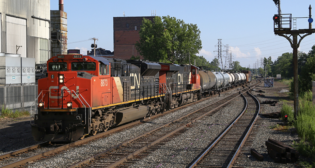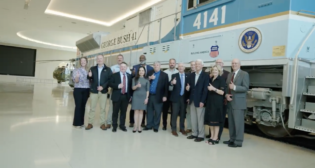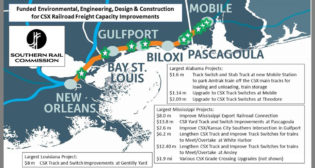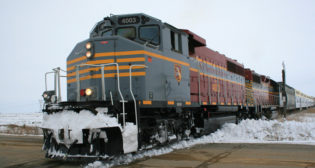
NS Issues East Palestine Progress Report
Written by Marybeth Luczak, Executive Editor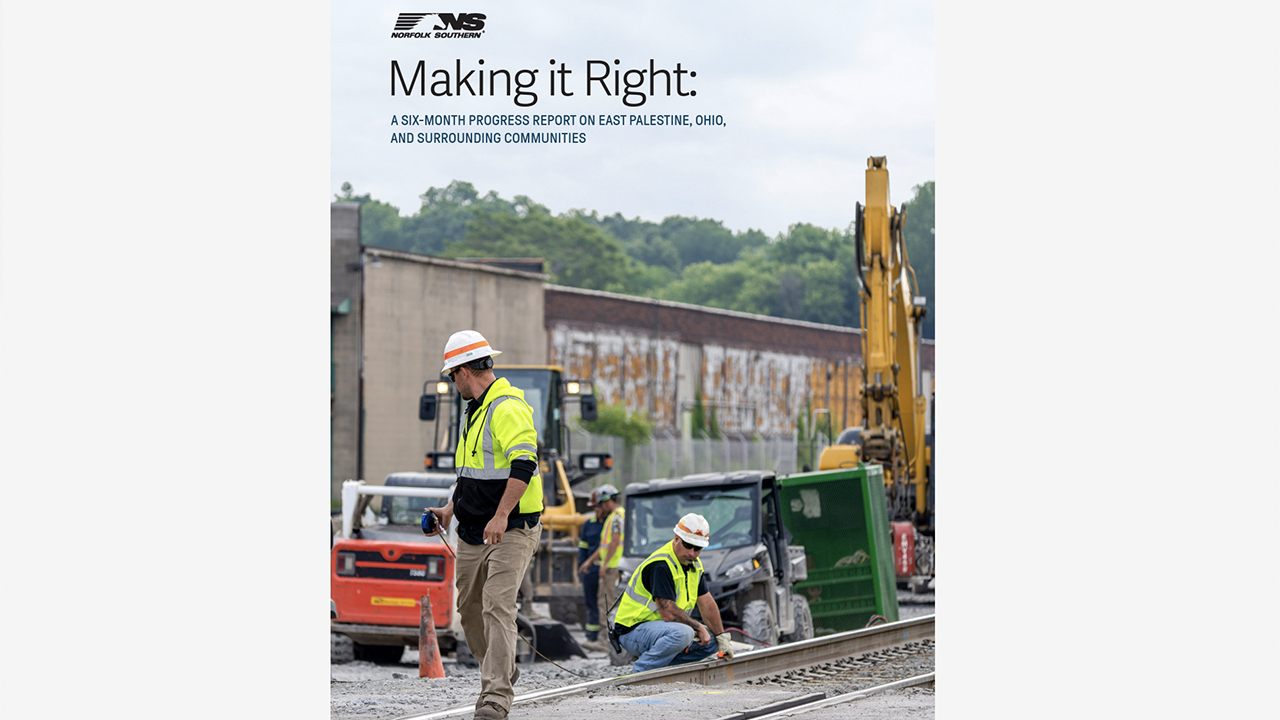
Norfolk Southern (NS) has released a six-month progress report outlining its efforts following the East Palestine, Ohio, train derailment as well as its next steps.
The 15-page report (download below) covers the work of 300-plus NS employees and contractors—from environmental remediation, governance efforts, safety efforts and community support to the work ahead in East Palestine and the surrounding communities.
Environmental Remediation
“The people who call East Palestine and the surrounding areas home deserve to know the air is safe to breathe, the water is safe to drink, and the land is safe to farm,” according to the NS report.
The Class I railroad said air quality testing “began within hours of the derailment and has continued daily ever since,” with monitoring performed by both the U.S. Environmental Protection Agency and an independent team of scientists, including the independent consulting firm, CTEH. “It continues to show the air in the East Palestine community is safe,” NS said. “Based on thousands of data points, the EPA and toxicologists at CTEH concur; the data collected does not indicate any short- or long-term risks.”
As for water, the municipal drinking water “is safe, as shown through weekly sampling by the Ohio EPA and a team of independent scientists,” NS reported. “In addition, the Columbiana County Health Department and independent scientists have tested more than 750 drinking water wells and have concluded the water from these wells is safe to drink. We are developing plans with East Palestine and the State of Ohio to ensure municipal and private well drinking water remains safe to drink in the future.” Also, the railroad reported that is has seen “significant ecological recovery in many downstream waterways, and we remain committed to restoring them, particularly Sulphur Run and Leslie Run.”
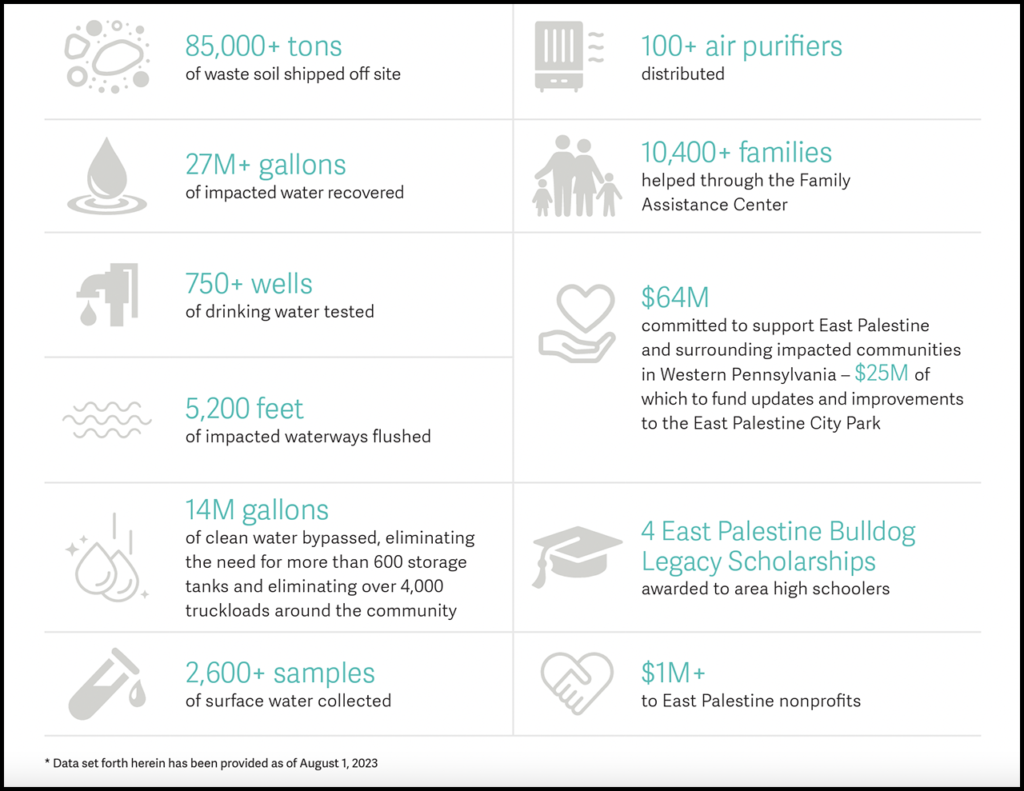
Because East Palestine is an agricultural area, it is important to ensure the soil around the derailment site is safe, said NS, which noted that farmers “are now operating as norma.” The railroad in June completed remediating both tracks that run through East Palestine, including removal of the underlying soil in response to feedback from the community and the EPA.
Governance Efforts
“Our response to the incident in East Palestine includes looking at our organization top to bottom to determine how we can enhance our safety culture and oversight to better understand how to prevent incidents like the East Palestine derailment in the future,” NS reported.
The railroad said it has implemented weekly Board meetings since the derailment to oversee its community recovery and site-specific mitigation efforts; established a new Vice President of Safety position this year, which was filled by 17-year NS veteran John Fleps; and added safety to new executive compensation metrics for 2023, with 10% of NS’s “annual incentive goals now based on measurable and publicly reported safety metrics—specifically the Federal Railroad Administration (FRA) reportable injury rate and reportable train accident rate.”
Safety Efforts
At NS, “everything starts with safety, and while the National Transportation Safety Board (NTSB) continues its investigation into the cause of the accident, we are not waiting for the final results to enhance our safety culture, and we’ve already identified specific actions,” according to the report.
NS has appointed consultant Atkins Nuclear Secured to conduct an independent review of the railroad’s safety culture and safety-related training programs. According to the railroad, full results are expected in fourth-quarter 2023 and “agreed-upon recommendations will be implemented in phases, as part of a larger roadmap for long-term success.”
The railroad has also partnered with its labor unions, and said that its leadership has “been on the ground listening to front line employees’ concerns and needs.”
Additionally, NS soon after the derailment released a six-point plan that focused on improving the safety of its operations, taking into account the preliminary findings of the National Transportation Safety Board.
Community Support
NS will continue to invest in East Palestine and the surrounding areas “for as long as it takes to help these communities recover and thrive,” the railroad reported. “Our financial assistance is only part of our promise to make these communities whole.”
Its Family Service Center is the main point of contact between NS and community members and has helped more than 10,400 families, “many of them multiple times,” according to the railroad. Overall, the railroad reported committing more than $64 million to support East Palestine and nearby communities in Ohio and Pennsylvania.
Next Steps
NS is committed to long-term testing “to establish the air, water, and soil around the derailment site are safe,” according to the report.
The railroad said that additional details on cleanup efforts will be forthcoming, including:
- “Completing excavation activities north and south of the tracks and disposing of excavated soils.
- “Taking thousands of soil samples to assess whether impacts remain at the site.
- “Assessing sediments in local waterways to inform potential future stream-washing or other remedial activities.
- “Offering a home cleaning program as an additional service where residents have voiced concerns about potential lingering odors.”
According to NS, the “majority of waste disposal” from the derailment is slated to be completed by the end of October.
Safety modernization efforts are also under way, NS reported. They include:
- Purchasing 22 DOT-117 tank cars to replace currently operating DOT-111 cars.
- Modernizing the equipment used by workers in the field, including “mobile-friendly programs that notify crew members and dispatchers when critical alarms occur, and infrared temperature guns that will display a digital temperature reading at the bearing.”
- “Creating Mechanical Department Instruction (MDI) as a clear process for mechanical employees to follow when called to assist with critical bearing alarms.”
- “Using artificial intelligence and years of historical data to find trends that could identify defects even earlier.”
- “Purchasing 10,000 169-degree surface temperature measurement sticks to replace the higher temp units deployed.”
- “Rolling out the first five of 17 inspection corridors including two portals with ultra high-resolution cameras that will provide 360-degree views.”
- Continuing to work with industry groups to “develop additional benchmarking initiatives around temperature trending algorithms.”
For community support, NS reported that it is working to:
- Create long-term funds that will “help support health outcomes in the community, ensure municipal and private well drinking water remains safe to drink, and mitigate any effect of the incident on a seller’s home property value.”
- Make renovations to the historic East Palestine train depot that NS donated to the village; they are expected to be completed this fall.
- Continue its work to “strengthen the community, with a particular focus on supporting the local economy.”
- Complete the enhancements to East Palestine City Park, including presenting the revitalization plans and timeline to the city council.
- “Follow through on other large-scale philanthropic investments.”
“As we move forward, we will continue to seek out honest feedback from area residents because we know supporting a community means listening to the people who call it home,” NS President and CEO Alan Shaw wrote in the report. “We will continue to listen, and we will continue our work to help the area recover and thrive.”
Further Reading:
• NS’s Shaw: ‘We Will See This Through’
• NS Delivering $500K for East Palestine Economic Development
• FRA: NS Safety Culture at ‘Involving Level of Maturity‘
